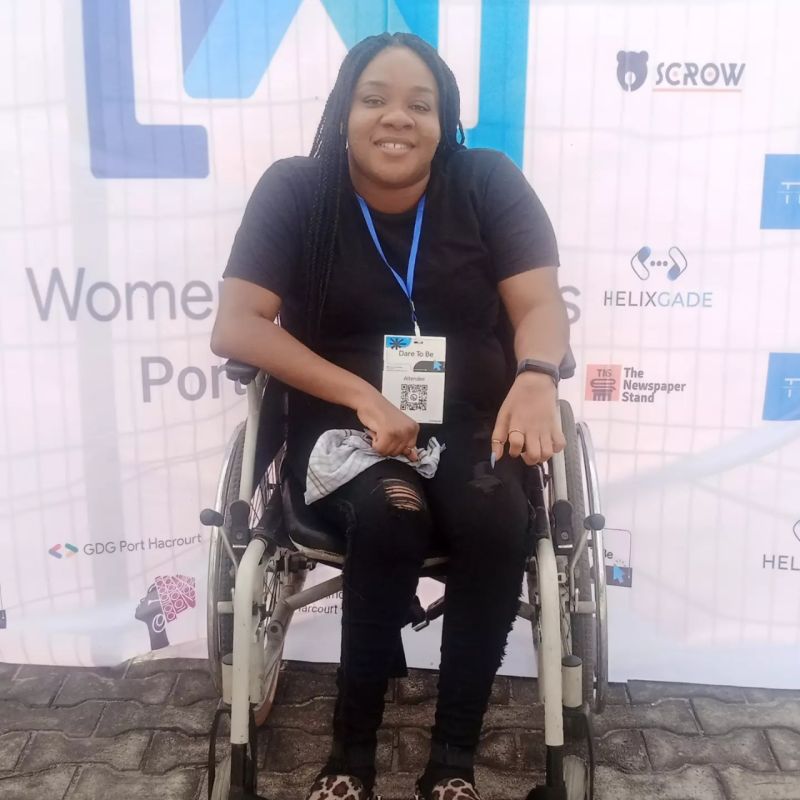By Dare Akogun
As the world marks the International Day of Persons with Disabilities, Adaobi Chuma-Okeke, a prominent disability rights advocate and Nguvu Change Leader, has renewed her call for accessibility, equal opportunities, safe mobility, and dignity for Nigerians living with disabilities.
In a heartfelt video shared on social media ahead of the global event, Adaobi recounted her personal struggles as a person confined to a wheelchair, highlighting the barriers she faced while pursuing her education.
“I completed my studies largely because of the support of friends and classmates. I remember being physically carried upstairs to attend classes,” she said. “These experiences inspired me to campaign for better accessibility in Nigerian schools.”
Adaobi’s video and an accompanying petition urge the Ministry of Education and the National Commission for Persons with Disabilities to implement meaningful measures to address accessibility challenges.
She criticized the slow implementation of the Disability Rights Act, noting that many schools and public institutions remain inaccessible.
“Policies and laws must translate into real change,” Adaobi said. “If every school, from primary to tertiary, had proper ramps and elevators, countless children with disabilities would have better access to education. I’ve risked injury and endured great discomfort in my pursuit of learning. It is time to remove these barriers for others.”
This year’s International Day of Persons with Disabilities theme, “Amplifying the Leadership of Persons with Disabilities for an Inclusive and Sustainable Future,” aligns with her message. It emphasizes the global movement’s slogan, “Nothing About Us Without Us,” calling for greater representation and inclusivity for persons with disabilities.
Challenges Beyond Accessibility
While the issue of accessibility is pressing, Adaobi pointed out that the challenges go beyond physical barriers. She highlighted the societal discrimination, stigma, and lack of awareness that people with disabilities face daily.
Unemployment remains a major concern, as many employers are either unaware of their legal obligations under the Disability Rights Act or unwilling to make necessary adjustments for inclusion.
“There is a significant gap in awareness and enforcement of disability rights in Nigeria,” she said. “This exacerbates the exclusion faced by people with disabilities, not just in schools but also in the workplace and public life.”
Adaobi’s call extends beyond wheelchair-accessible infrastructure in schools. She advocates for a broader push for inclusion in public spaces, transport systems, and healthcare services.
She also stresses the importance of policies that promote equal employment opportunities and social inclusion for persons with disabilities.
Her video, which has sparked widespread discussions online, reflects a growing awareness of the systemic barriers facing millions of Nigerians with disabilities.
“There is an urgent need for dignity and respect for all Nigerians, regardless of their physical condition,” she concluded.
Adaobi’s advocacy is fueling increasing pressure on the government and private sector to take meaningful steps toward removing barriers and building a truly inclusive society.
With her voice amplifying the concerns of millions, the message is clear: the time for promises is over; action is long overdue.

